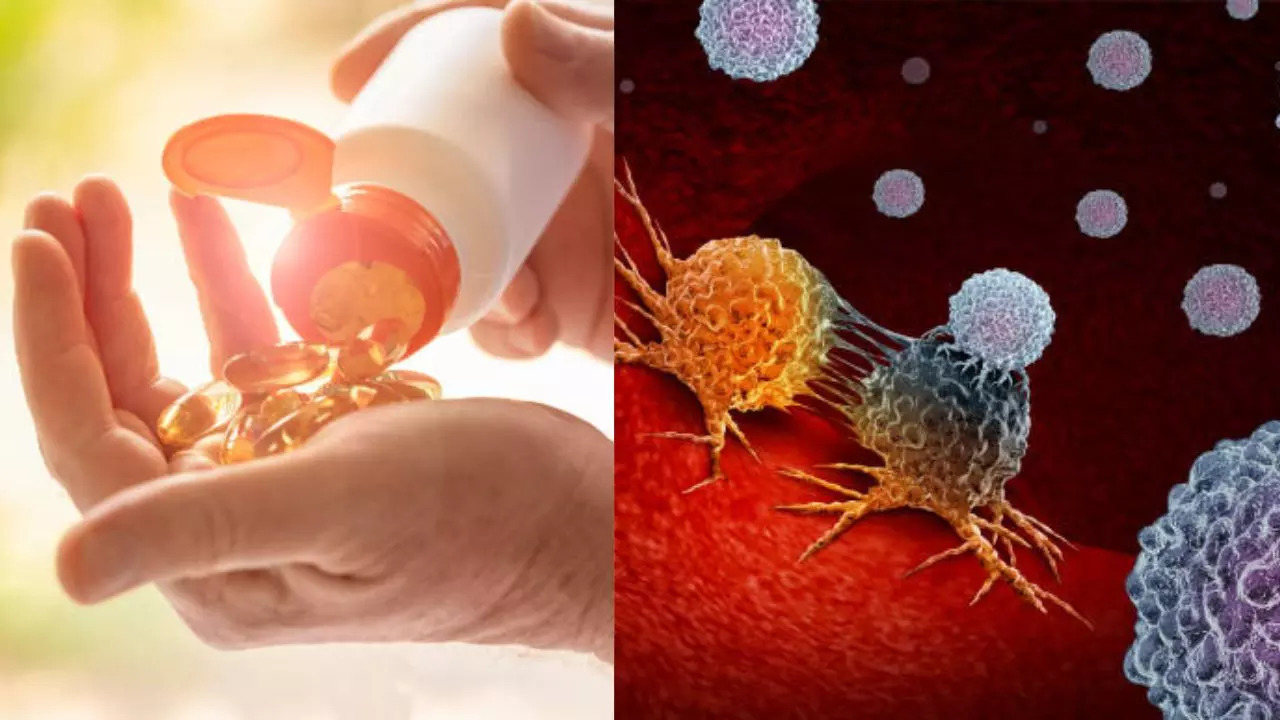Contents
-
news
-
Health
Attention Deficiency of these 4 vitamins can cause cancer!
Low levels of the vitamin in your body are linked to higher overall cancer risk and mortality. Several studies state that deficiencies in vitamin D, vitamin A, vitamin C and B12 can increase the risk of various cancers of the colon, stomach, lung and blood, to name a few. Read on to know how.

Several studies have found significant associations between low levels of the vitamin and the risk of developing certain types of cancer – as these nutrients play a vital role in building your immunity levels.
What do vitamins do for your body? Well, the importance of these minerals in the field of health and wellness cannot be underestimated. Vitamins are not only important for maintaining your body’s best function and development, but also help prevent a variety of serious health ailments. However, a less known aspect of this complex relationship between vitamins and health is the possible link between vitamin deficiency and cancer.
Several studies have found significant associations between low levels of the vitamin and the risk of developing certain types of cancer – as these nutrients play a vital role in building your immunity levels.
Understanding Vitamin Deficiency
Vitamins are organic compounds essential for various physiological processes in the human body. While each vitamin has a different purpose – from boosting the immune system to facilitating energy production, their deficiencies can lead to a variety of health problems.
This deficiency may be due to inadequate dietary intake, poor absorption, or increased demand due to disease.
Deficiency of which vitamin can cause cancer?
vitamin D
According to studies, there is a strong association between vitamin D and increased risk of cancer as inadequate vitamin D levels increase the risk of developing colorectal or bladder cancer. In addition, insufficient vitamin D is generally associated with a higher risk of dying from dangerous disease.
Experts say people who had vitamin D levels below current guidelines had a 31 percent increased risk of colorectal cancer during follow-up — an average of 5.5 years. People with vitamin D above recommended levels had a 22 percent reduction in risk. This relationship was stronger in women than in men.
vitamin C
Vitamin C, also known as ascorbic acid, is a water-soluble vitamin that is high in antioxidants. It helps in stronger immunological response, wound healing and collagen formation.
However, if you are deficient in this vitamin, you may be at higher risk of fatal diseases – especially of the esophagus, stomach, and lungs.
vitamin b12
Studies say that vitamin B12 deficiency in your body can lead to pernicious anemia – a condition where your immune system attacks healthy cells in your stomach, increasing the risk of developing stomach cancer. According to doctors, B12 deficiency destroys cells that secrete intrinsic factors important for the absorption of many other nutrients.
In addition, hypovitaminosis B12 is often reported in people with hematologic malignancies such as leukemia or lymphoma – blood cancers that affect bone marrow production of red blood cells.
Vitamin A deficiency
Vitamin A – A fat-soluble vitamin, extremely important for cellular growth, immunological response and vision. Doctors say active forms of vitamin A, also called retinoids, are important for cell growth and gene expression.
According to research, vitamin A deficiency may increase the chance of developing certain types of cancer, including stomach, esophagus, and lung.
Get the latest news live on Times Now with breaking news and top headlines from around the world.


